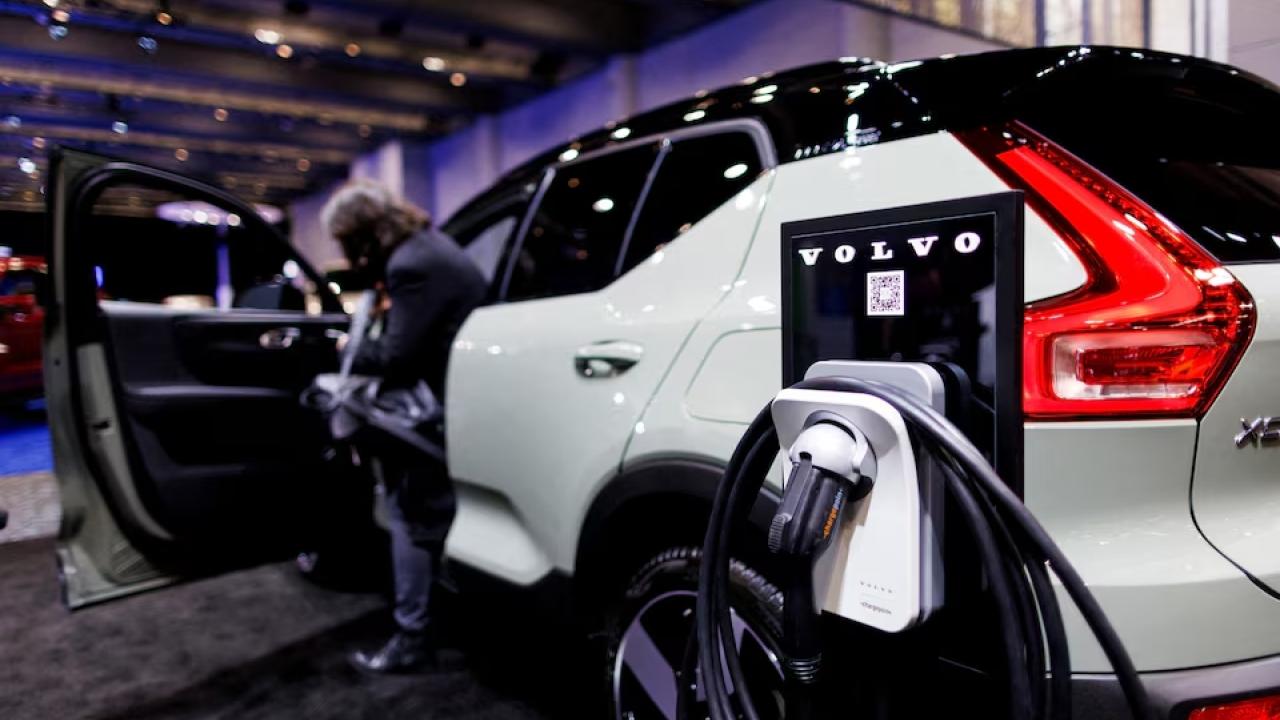
Volvo, JLR, General Motors and Stellantis are said to be the most affected groups.
The possible tariffs of up to 20% on vehicle imports from the European Union and 25% on products from Mexico and Canada that the team of the president-elect of the United States, Donald Trump, is considering approving at the beginning of his presidency after the inauguration on January 20, 2025, could reduce the gross operating profit (Ebitda) of European and American manufacturers by up to 17%, according to a report by S&P consulted by Europa Press .
Volvo Cars and Jaguar Land Rover, due to the value of their high-end vehicles, could be the most affected by an aggressive trade policy by the Republican White House, although General Motors and Stellantis would also be affected due to the high volume of imports from Mexico that these companies rely on to operate in the US market. The risks for BMW and Mercedes-Benz would be more contained.
As a result, the research firm warns that companies will end up passing on the increase in costs to the final price, which could reduce vehicle purchases due to higher bills and limit future profits for manufacturers.
Another alternative would be to absorb the impact by reducing profits, but this would also end up having a negative effect on its financial statements.
"Donald Trump's re-election will likely intensify the headwinds facing the global automotive industry in an already challenging 2025," the analysts warn in the document.
S&P understands that, based on his campaign announcements, Trump will revise the Inflation Reduction Act by eliminating the tax credit of up to US$7,500 to support the sale of electric vehicles.
Furthermore, the introduction of additional tariffs on imports of foreign goods, with higher duties on imports from China, could include a significant increase in prices due to the increase in tariffs from the current 2.5% to 100%.
The impact on EBITDA of these new trade wars could therefore be less than 10% for BMW, Mercedes-Benz and Hyundai-Kia; between 10% and 20% for Toyota and Volkswagen and more than 20% for Volvo Cars, JLR, Stellantis and General Motors.
"If the tariffs materialize as described, the impact on the rating would depend on the current rating spread and the success of mitigation strategies," the rating agency said.
In addition, in view of the review of the free trade agreement with Mexico and Canada scheduled for 2026, S&P does not rule out "unilateral" measures by Washington, which could have a negative effect on an automotive industry faced with a slowdown in demand.
In this regard, Toyota and Hyundai-Kia will probably remain among the top three importers of finished light vehicles to the United States in 2025, with import volumes estimated to exceed 10% of the two companies' global sales and originate from Japan and South Korea, two countries that would escape this new trade dispute.
THE CRISIS BY MANUFACTURER
In this context, Stellantis' exposure to imports from Europe would be low.
However, the company would be affected by tariffs on imports from Mexico, where it produces several types of vehicles, particularly the RAM and Jeep models, as well as tariffs on Canadian imports.
At the same time, Volkswagen's exports to the US are low, at around 7% of its global sales.
However, its imports from Europe include a significant portion of its premium Audi and Porsche models, increasing the group's overall exposure.
The German company sends a limited set of VW models (Jetta, Taos, Tayron) and the Audi Q5 from Mexico.
BMW and Mercedes-Benz, for their part, have "relatively low" tariff exposure, as US imports account for between 7% and 8% of their global sales.
Meanwhile, the crisis is believed to be worse at Volvo Cars, which produces its S60 sedan and new EX90 electric SUV in the US, while JLR makes most of its vehicles in the UK and Slovakia.
American carmakers Ford and GM maintain a "significant" manufacturing presence in Mexico.
This is due to lower labor costs, favorable trade agreements and proximity to the US market.
Currently, General Motors produces eight models in Mexico (Silverado, Sierra, Equinox, Terrain and Blazer), while Ford only manufactures three models in the country (Bronco, Maverick and the Mustang Mach E).
In the case of Toyota and Hyundai-Kia, the impact, according to S&P, "appears manageable" given that they only import a few models from Mexico (Toyota produces the Tacoma and Hyundai-Kia the K4 and Tucson models in the country).
However, Toyota's main risk would come from the production of its RAV4 model and some Lexus models in Canada.
But if a potential 20% tariff on imports from Japan and South Korea were to be applied as threatened against Europe and the UK, another 9% of Ebitda could be at risk for Toyota and up to 19% for Hyundai-Kia.









